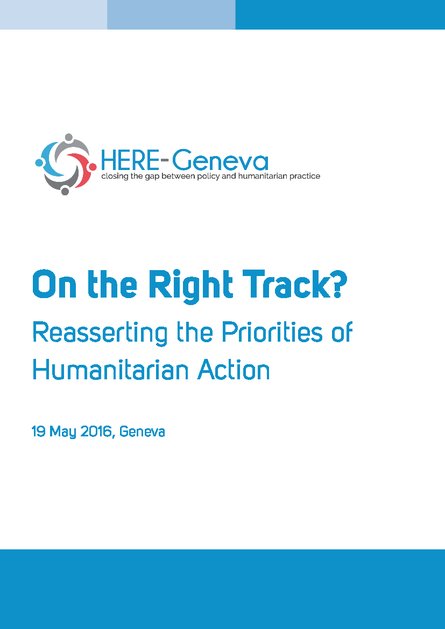
Measures to improve humanitarian action are often framed as a technical issue, one of efficiency or process, yielding agreements to do better in the future and calls for further guidelines or more training. But imperfect as some may be, the problem does not lie with a lack of guidelines or frameworks. It goes deeper: for more effective humanitarian action to happen, the sector must revisit its foundations.
The reflections in this paper are grounded in desk research, interviews with former high level humanitarian officials, and a set of expert working meetings. In a detailed analysis of the three priority areas of principles, protection, and accountability, two conditions have stood out as Paramount for more effective humanitarian action. First, respect for the law and previous policy commitments. Second, principled, accountable delivery of humanitarian assistance and protection. The primary target – ending and preventing crisis in the first place – is largely beyond the control of sole humanitarians. The secondary target, one manageable within the sector, is mounting a better response to it. The question is not whether or not ‘the system’ is broken, but how it is broken, and how it can better improve the lives of people in today’s crises, particularly in situations of armed conflict where the most urgent needs are found.